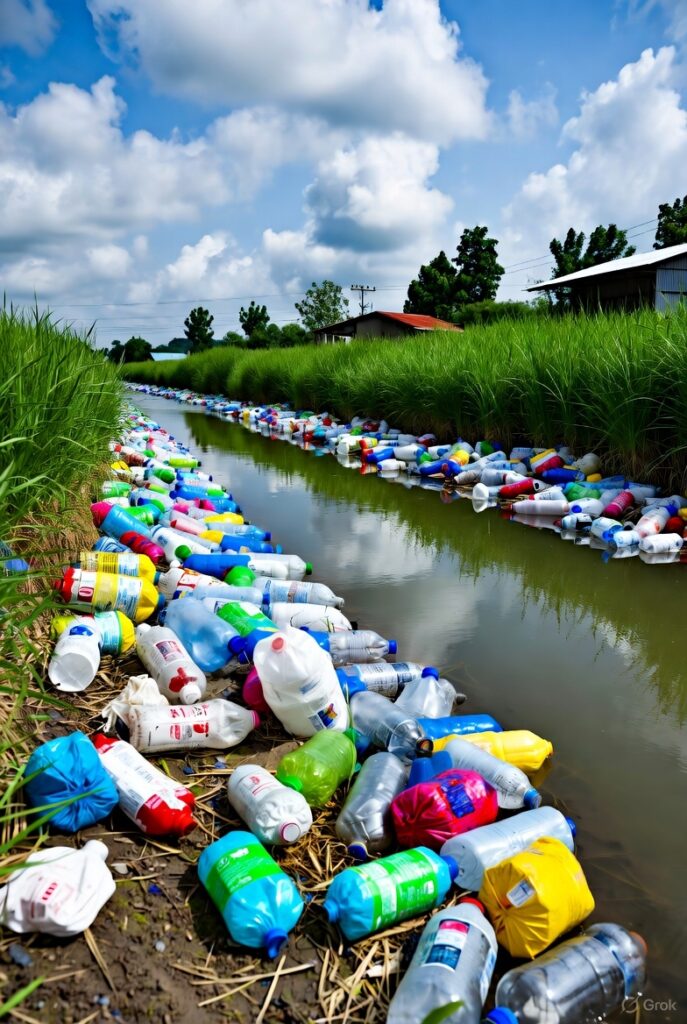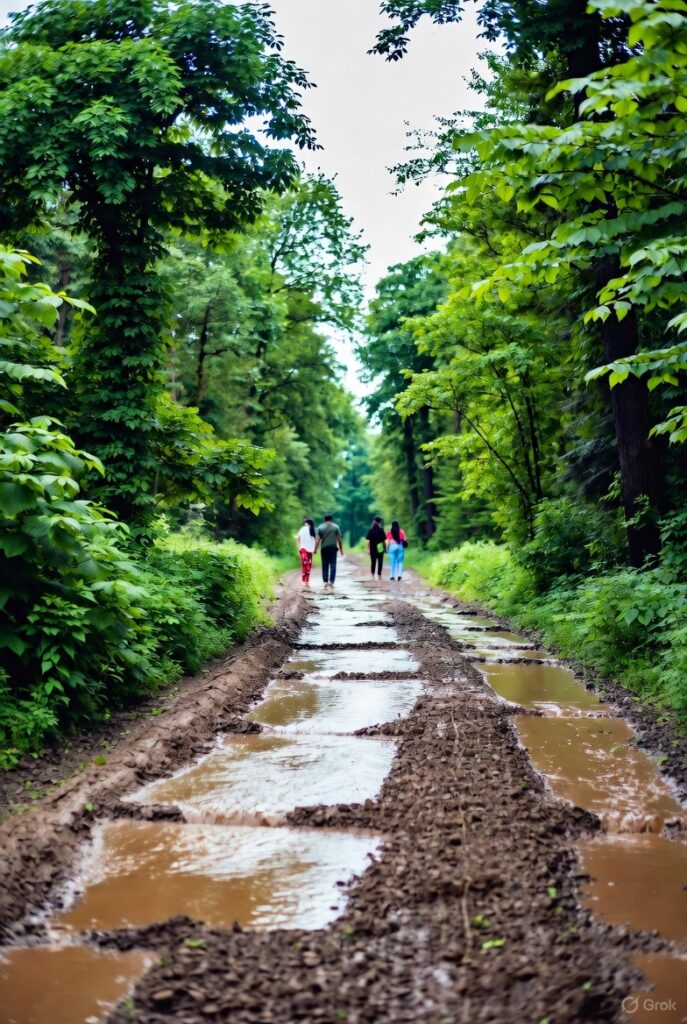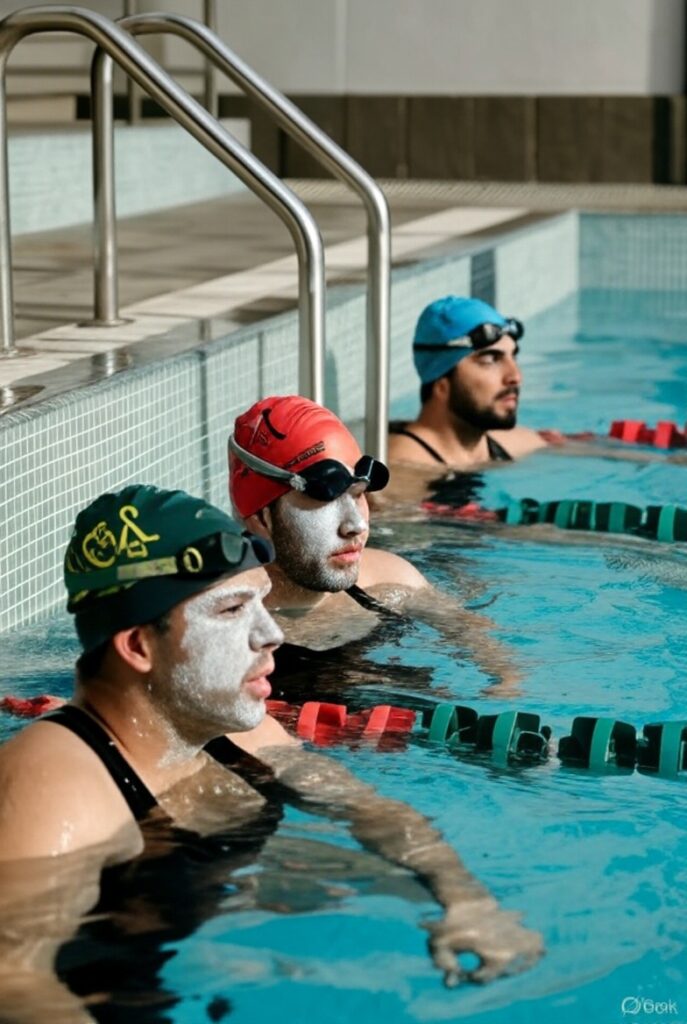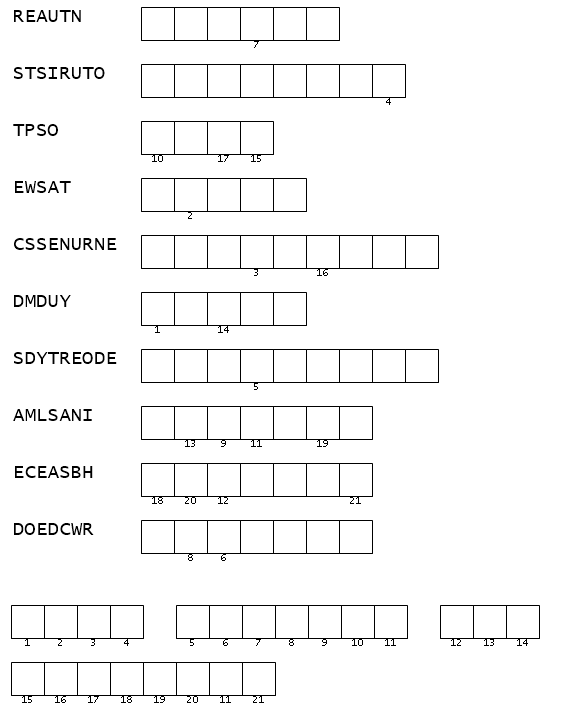- why “green travel” can sometimes hurt nature and local communities
Introduction:
1. Too many tourists
When many tourists visit one place, it can hurt nature. Paths in forests and mountains can get broken or muddy, flowers and plants can be destroyed, and animals can get scared or leave their homes. Water in rivers or lakes can become dirty from trash or sunscreen, and beaches can get full of garbage. Even small villages can become crowded, and local people may feel uncomfortable with too many visitors.
###################
Too Many Tourists
When many tourists visit a place, it can hurt nature and people. In forests and mountains, paths can break and become muddy. Flowers and small plants can be stepped on and destroyed. Animals can be scared by noise and leave their homes. Rivers and lakes can become dirty from trash, sunscreen, or soap. Beaches can have a lot of plastic and garbage. Even small villages can become very crowded. Streets can be full of people, and local people can feel uncomfortable.
For example, tourists can leave trash in the forest, walk on flowers in the mountains, feed animals too much, or swim in lakes with dirty sunscreen. Beaches can be full of plastic bottles, bags, and food waste. Villages can have noise, traffic, and too many cars. All this changes the life of animals, plants, and local people.
There are some ways to stop too many tourists. Places can limit the number of visitors each day. Tourists can pay small fees to help protect nature. They can use marked paths and do not leave trash. Authorities can close crowded areas for some days to give nature rest. Tourists can learn to respect animals and plants. People can also make signs and guides to show how to protect the place.
With these rules, tourists can enjoy nature and villages, and plants, animals, and local people can live safely and quietly.
_____________________
Vocabulary:
- to hurt nature – to make nature bad or damaged
- to get broken – to stop working or be in pieces
- to be destroyed – to be ruined or not exist anymore
- to get scared by noise – to feel afraid because of loud sounds
- trash – things you throw away
- sunscreen – cream for your skin to stop sunburn
- garbage – waste, trash
- to become crowded – many people come, very full
- a path – a small road to walk on
- muddy – full of wet dirt
- a bag – something to carry things
- food waste – food you do not eat and throw away
- to change the life of animals – to make animals live differently, not normal
- to limit – to make less or not allow too much
- a fee – money you pay for something
- to protect nature – to keep nature safe and clean
- a marked path – a path with signs to show where to go
- an authority – people or group in charge, can make rules
- to close a crowded area – stop people from going to a busy place
- to give a rest – let nature or people have time without problems
- to respect animals – to treat animals well and not hurt them
- a rule – something you must do or must not do
- to enjoy – to feel happy or have fun
###################

Multiple choice, one answer correct:
audio 1-16
audio 17-23
- What does to hurt nature mean?
a) to damage plants and animals
b) to run very fast in the forest
c) to eat food quickly - What does to get broken mean?
a) to walk slowly on a path
b) to stop working or break
c) to wash something carefully - What does to be destroyed mean?
a) to be ruined or gone
b) to keep something safe
c) to build something new - What does to get scared by noise mean?
a) to rest quietly in the room
b) to feel afraid because of loud sounds
c) to sing very loudly - What is trash?
a) water for washing clothes
b) things cooked for dinner
c) things people throw away - What is sunscreen?
a) paper used to cover books
b) cream that protects the skin
c) water for plants to grow - What is garbage?
a) flowers in a garden
b) clean water from a lake
c) waste that people throw away - What does to become crowded mean?
a) a place without any people
b) a place with many people
c) a place full of animals - What is a path?
a) a small road for walking
b) a big hill for climbing
c) a river for fishing - What does muddy mean?
a) very dry and dusty
b) full of wet brown dirt
c) very clean and clear - What is a bag?
a) something to carry things
b) something to cook food
c) something to wear on your feet - What is food waste?
a) food made for animals
b) food people do not eat
c) food bought in a shop - What does to change the life of animals mean?
a) to feed animals every day
b) to make animals live differently
c) to play with animals in the garden - What does to limit mean?
a) to make something smaller
b) to draw slowly on paper
c) to wash something daily - What is a fee?
a) a bag used to carry shoes
b) money you pay for entry
c) a path in a park - What does to protect nature mean?
a) to climb mountains and trees
b) to keep nature safe and clean
c) to watch birds in the park
———end of audio——– - What is a marked path?
a) a river in the forest
b) a road with many cars
c) a path with signs for walkers - What is an authority?
a) a small animal in the forest
b) people who can make rules
c) a plant with green leaves - What does to close a crowded area mean?
a) to make the area larger
b) to stop people from entering
c) to open the area for fun - What does to give a rest mean?
a) to walk longer in the sun
b) to talk loudly with friends
c) to let nature or people have time - What does to respect animals mean?
a) to treat animals kindly
b) to scare animals for fun
c) to throw food at animals - What is a rule?
a) a tool used for writing
b) a place to sleep at night
c) something people must follow - What does to enjoy mean?
a) to feel cold and hungry
b) to feel happy and have fun
c) to feel tired and bored
___________________
Answers:
1a 2b 3a 4b 5c 6b 7c 8b 9a
10b 11a 12b 13b 14a 15b 16b
17c 18b 19b 20c 21a 22c 23b
__________________
Correct answers:
- What does to hurt nature mean – to damage plants and animals
- What does to get broken mean – to stop working or break
- What does to be destroyed mean – to be ruined or gone
- What does to get scared by noise mean – to feel afraid because of loud sounds
- What is trash – things people throw away
- What is sunscreen – cream that protects the skin
- What is garbage mean – waste that people throw away
- What does to become crowded mean – a place with many people
- What is a path mean – a small road for walking
- What does muddy mean – full of wet brown dirt
- What is a bag mean – something to carry things
- What is food waste mean – food people do not eat
- What does to change the life of animals mean – to make animals live differently
- What does to limit mean – to make something smaller
- What is a fee mean – money you pay for entry
- What does to protect nature mean – to keep nature safe and clean
- What is a marked path mean – a path with signs for walkers
- What is an authority mean – people who can make rules
- What does to close a crowded area mean – to stop people from entering
- What does to give a rest mean – to let nature or people have time
- What does to respect animals mean – to treat animals kindly
- What is a rule mean – something people must follow
- What does to enjoy mean – to feel happy and have fun
###################

Gap-fill exercise:
- Tourists can ______ nature if they step on flowers.
a) hurt
b) play
c) wash - The path ______ after the heavy rain.
a) stays
b) broke
c) cleans - If people take too many flowers, they can be ______.
a) destroyed
b) happy
c) cleaned - Loud noise can make animals ______.
a) rest
b) get scared
c) eat - Please put your ______ in the bin.
a) sunscreen
b) bag
c) trash - Always use ______ to protect your skin from the sun.
a) mud
b) sunscreen
c) food waste - The river is full of ______ after the festival.
a) garbage
b) water
c) plants - The park became ______ after the holiday.
a) empty
b) crowded
c) clean - We walked on a small ______ through the forest.
a) path
b) river
c) hill - The ground is very ______ after the rain.
a) dry
b) muddy
c) smooth - I put my books in a ______.
a) bag
b) plate
c) food - Do not throw ______ on the floor.
a) mud
b) food waste
c) water - Human activities can ______ the life of animals.
a) change
b) clean
c) wash - You must ______ the number of visitors in the park.
a) limit
b) protect
c) enjoy - The museum charges a small ______.
a) money
b) bag
c) fee - People should always try to ______ nature.
a) hurt
b) protect
c) break - Walk only on the ______ to avoid plants.
a) road
b) river
c) marked path - The government is an ______ in the park.
a) animal
b) authority
c) tree - They had to ______ the beach because it was too full.
a) open
b) close
c) build - After work, it is good to ______.
a) play music
b) talk loudly
c) take a rest - Visitors must ______ animals and not scare them.
a) respect
b) eat
c) break - Everyone must follow the park ______.
a) bag
b) plate
c) rule - Children ______ themselves when they play in the forest.
a) cry
b) enjoy
c) clean
———————–
Answers:
1a – 2b – 3a – 4b – 5c – 6b –
7a – 8b – 9a – 10b – 11a – 12b – 13a –
14a – 15c – 16b – 17c – 18b – 19b –
20c – 21a – 22c – 23c
______________
Correct version:
- Tourists can hurt nature if they step on flowers.
- The path broke after the heavy rain.
- If people take too many flowers, they can be destroyed.
- Loud noise can make animals get scared.
- Please put your trash in the bin.
- Always use sunscreen to protect your skin from the sun.
- The river is full of garbage after the festival.
- The park became crowded after the holiday.
- We walked on a small path through the forest.
- The ground is very muddy after the rain.
- I put my books in a bag.
- Do not throw food waste on the floor.
- Human activities can change the life of animals.
- You must limit the number of visitors in the park.
- The museum charges a small fee.
- People should always try to protect nature.
- Walk only on the marked path to avoid plants.
- The government is an authority in the park.
- They had to close the beach because it was too full.
- After work, it is good to rest.
- Visitors must respect animals and not scare them.
- Everyone must follow the park rule.
- Children enjoy themselves when they play in the forest.
###################

True or false:
- Beaches can become full of garbage from tourists.
- Animals always stay in their homes, even with many visitors.
- Crowded areas can sometimes be closed to protect nature.
- Flowers and plants can get destroyed by too many visitors.
- Water in lakes and rivers is always clean, even with many tourists.
- Paths in forests can get muddy when many tourists visit.
- Eco-tourism does not need any regulations or fees.
- Animals are never scared by noise from tourists.
- Small villages usually have fewer problems with tourists than big cities.
- Tourists can change the life of animals in forests and mountains.
- Local people may feel uncomfortable if villages are crowded.
- Trash and sunscreen can make rivers dirty.
- Respecting animals and rules helps to protect nature.
- Eco-tourism never causes any problems for nature.
_________________
True: 1,3,4,6,10,11,12
________________
Correct version:
- Beaches can become full of garbage from tourists. – True
- Animals always stay in their homes, even with many visitors. – False. True is: Animals can leave their homes if they are scared by tourists.
- Crowded areas can sometimes be closed to protect nature. – True
- Flowers and plants can get destroyed by too many visitors. – True
- Water in lakes and rivers is always clean, even with many tourists. – False. True is: Water in lakes and rivers can become dirty when many tourists visit.
- Paths in forests can get muddy when many tourists visit. – True
- Eco-tourism does not need any regulations or fees. – False. True is: Eco-tourism needs rules and sometimes fees to protect nature.
- Animals are never scared by noise from tourists. – False. True is: Animals can get scared by noise from tourists.
- Small villages usually have fewer problems with tourists than big cities. – False. True is: Small villages can also have problems when too many tourists visit.
- Tourists can change the life of animals in forests and mountains. – True
- Local people may feel uncomfortable if villages are crowded. – True
- Trash and sunscreen can make rivers dirty. – True
- Respecting animals and rules helps to protect nature. – False. True is: Respecting animals and following rules helps to protect nature.
- Eco-tourism never causes any problems for nature. – False. True is: Eco-tourism can cause problems if too many tourists visit a place.
################
Match the word to the definition:
Words:
- trash
- to hurt nature
- muddy
- path
- sunscreen
- fee
- authority
- food waste
- to limit
- to respect animals
- marked path
- garbage
- to protect nature
- bag
Definitions:
A. something to carry things
B. something people throw away
C. cream that protects the skin
D. to damage plants or animals
E. waste from food that is not eaten
F. money you pay for entry
G. to keep nature safe
H. people who can make rules
I. a small road for walking
J. full of wet brown dirt
K. to treat animals kindly
L. a path with signs for walkers
M. to make something smaller
N. waste that people throw away
_______________________
Answers:
1B, 2D, 3J, 4I, 5C, 6F, 7H, 8E,
9M, 10K, 11L, 12N, 13G, 14A
###############
Interview, fill in, words below:
destroy – homes – muddy – rules – crowded –
protect – problems – visit – sunscreen –
beaches – authorities – park managers –
trash – uncomfortable
Q1. What is mass tourism?
A1. Mass tourism is when many tourists __________ the same place at the same time.
Q2. Why can too many tourists be a problem?
A2. Too many tourists can damage nature, scare animals, and make villages __________.
Q3. How does tourism affect plants and flowers?
A3. Tourists can step on plants, pick flowers, and __________ them.
Q4. When do paths in forests get broken or muddy?
A4. Paths get broken or __________ when many tourists walk on them, especially after rain.
Q5. Who can help protect nature in tourist areas?
A5. __________ and park workers can help protect nature.
Q6. Where do tourists often make trash problems?
A6. Tourists often make trash problems on __________, in forests, and near rivers.
Q7. Which rules can help protect animals and nature?
A7. Rules like staying on marked paths, not throwing __________, and respecting animals help protect nature.
Q8. How much does a fee help in tourism areas?
A8. A fee can help __________nature because it gives money for cleaning and maintenance.
Q9. What happens to small villages with many tourists?
A9. Small villages can become crowded, and local people may feel __________.
Q10. Can tourism change the life of animals?
A10. Yes, animals can leave their __________ or change their behavior when many tourists come.
Q11. Who decides to close a crowded area?
A11. Authorities or __________ can decide to close a crowded area for a rest.
Q12. How do tourists harm rivers and lakes?
A12. Tourists can make rivers and lakes dirty with trash, __________, and food waste.
Q13. What should tourists do to respect animals?
A13. Tourists should not scare animals, stay quiet, and follow park __________.
Q14. Why is eco-tourism sometimes not enough?
A14. Eco-tourism can still cause __________ if too many tourists visit at the same time.
—————————————–
Correct version:
Interview – Mass Tourism and Tourists Flooding Places
Q1. What is mass tourism?
A1. Mass tourism is when many tourists visit the same place at the same time.
Q2. Why can too many tourists be a problem?
A2. Too many tourists can damage nature, scare animals, and make villages crowded.
Q3. How does tourism affect plants and flowers?
A3. Tourists can step on plants, pick flowers, and destroy them.
Q4. When do paths in forests get broken or muddy?
A4. Paths get broken or muddy when many tourists walk on them, especially after rain.
Q5. Who can help protect nature in tourist areas?
A5. Authorities and park workers can help protect nature.
Q6. Where do tourists often make trash problems?
A6. Tourists often make trash problems on beaches, in forests, and near rivers.
Q7. Which rules can help protect animals and nature?
A7. Rules like staying on marked paths, not throwing trash, and respecting animals help protect nature.
Q8. How much does a fee help in tourism areas?
A8. A fee can help protect nature because it gives money for cleaning and maintenance.
Q9. What happens to small villages with many tourists?
A9. Small villages can become crowded, and local people may feel uncomfortable.
Q10. Can tourism change the life of animals?
A10. Yes, animals can leave their homes or change their behavior when many tourists come.
Q11. Who decides to close a crowded area?
A11. Authorities or park managers can decide to close a crowded area for a rest.
Q12. How do tourists harm rivers and lakes?
A12. Tourists can make rivers and lakes dirty with trash, sunscreen, and food waste.
Q13. What should tourists do to respect animals?
A13. Tourists should not scare animals, stay quiet, and follow park rules.
Q14. Why is eco-tourism sometimes not enough?
A14. Eco-tourism can still cause problems if too many tourists visit at the same time.
###############
Cheat sheet:
| Problem | Examples | Solution |
|---|---|---|
| Paths damaged | Muddy forest paths, broken mountain trails | Use marked paths only |
| Plants destroyed | Flowers stepped on, small plants pulled, grass flattened | Make rules to protect plants |
| Animals scared | Birds flying away, deer hiding, fish leaving lakes | Limit visitors per day |
| Water polluted | Trash in rivers, sunscreen in lakes, soap in streams | Pay small fees for protection; clean-ups |
| Beaches dirty | Plastic bottles, food waste, old towels, cigarette butts | Clean-up campaigns; rules about trash |
| Villages crowded | Streets full of tourists, small shops blocked, playgrounds full | Close areas sometimes; guide tourists |
| Local people unhappy | Noise, traffic, loss of quiet life, homes disturbed | Educate tourists to respect locals |
| Roads blocked | Cars, buses, bicycles | Limit vehicles; pedestrian paths |
| Fires and damage | Campfires in forest, broken benches, graffiti | Make strict rules; supervise visitors |
| Noise pollution | Loud music, shouting | Limit visitors; signs asking for quiet |
| Wildlife fed wrongly | Feeding bread to birds, giving candy to monkeys | Teach correct behavior; guides |
#######################
Unscamble the words, and the phrase reads………………
